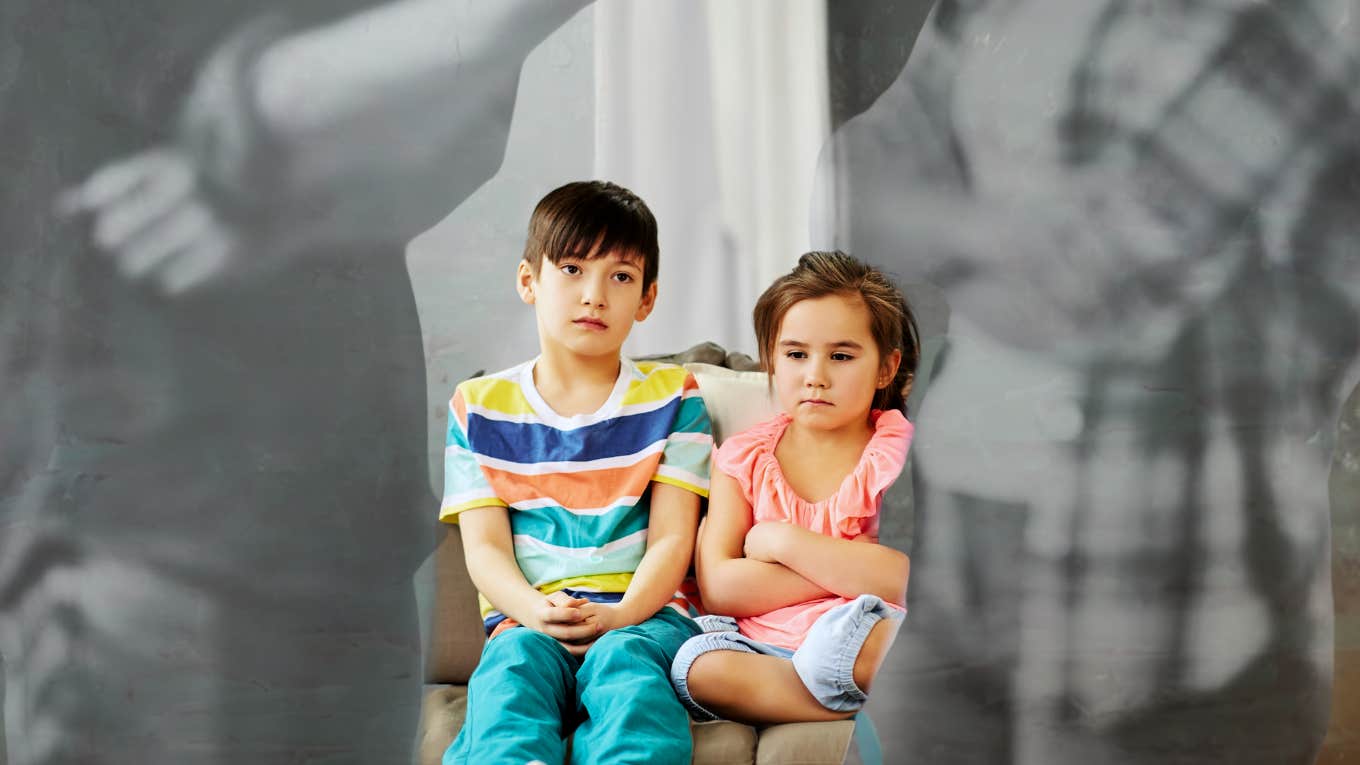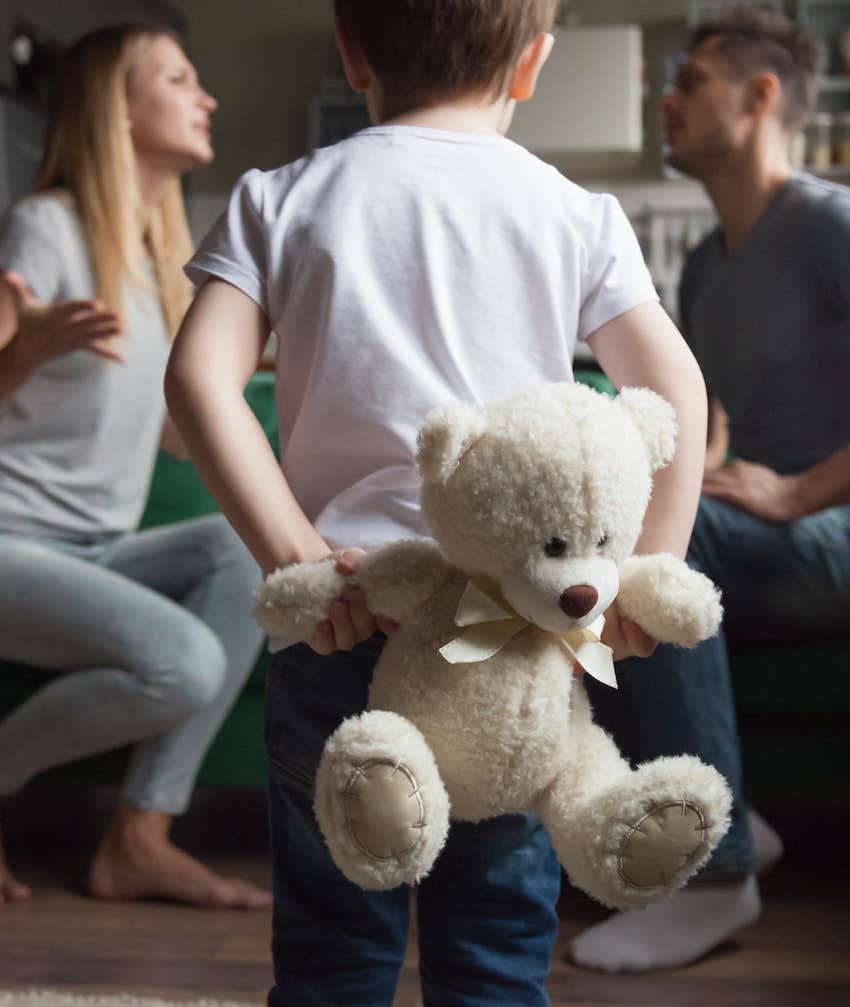9 Things Vulnerable Kids Desperately Want Their Divorced Parents To Know
It's not just the parents who suffer from the failed union.
 Syda Productions | Canva
Syda Productions | Canva When things don't work out between you and the person you married, you suffer internally, agonize over a new life without each other, and reminisce about how he once made you feel. Then, it hits you: What about your children? What happens to them? Is divorce bad for kids?
Beyond the financial aspects of your marriage and deciding who keeps the kids, not much is discussed, and many parents forget about the effects of divorce on children and the emotional turmoil they suffer. It's not just the parents who suffer from the failed union.
Often, children of divorce undergo the mayhem in silence.
Here are 9 things vulnerable kids desperately want their divorced parents to know:
1. They feel responsible.
Children may feel overwhelming guilt about the relationship ending. Some children may feel the marriage ended because of something they said or did.
Sadly, without a parent's reassurance that the divorce had nothing to do with them or their actions, your children may harbor this and feel anxiety over losing the other parent in their daily lives as well.
 fizkes via Shutterstock
fizkes via Shutterstock
2. Their bad behavior will change.
Some children begin to act out to display the distance from their new home life situation. Suddenly going from a secure two-parent home to a one-parent home can be devastating for some. For others, withdrawal seems best to avoid getting hurt further.
Of course, children who are suddenly uncomfortable in an alien environment may retreat to the safety of their fantasies, friends, and schoolwork — anything to keep them from admitting something is wrong.
The Clinical Child and Family Psychology Review explored children's adaptation to divorce finding various trajectories. Some children act out because the only parent in their lives full-time becomes distracted and overwhelmed by the situation and avoids the children. As a result, the misbehaving children begin to hope their new behavior will force their parents to pay attention to them. It may be the only way these children know how to cry out for help.
3. They feel an overwhelming sense of loss.
Losing a parent to divorce can be just as traumatic, in some cases, as losing a parent to death. Where some once seemed complacent, many may feel loss because the other parent is no longer in their lives full-time.
In DK Simoneau's book, We're Having A Tuesday, Simoneau describes how children living with both parents, but not necessarily under the same roof, can find solutions that work for both the divorced parents and the children involved.
In the end, parents have to read between the lines and follow all the nonverbal cues children send out to help resolve this matter. Sadly, feelings of loss may always be with your child, but there are tactics parents can employ to decrease these feelings over time.
4. They probably resent you.
Although most parents try to shield their children from the harmful effects of divorce, resentment can creep in. This is especially true when one parent seems to have moved on to another love, another life, and eventually another family.
Children can feel displaced, not knowing where, if at all, they fit into their absent parent's life.
5. They hate when you fight.
Believe it or not, your children love both of you. So bashing one — or denouncing the other — isn't showing the children you're a hero. In their eyes, you're making an already difficult situation unbearable.
Besides, fighting will only give the absent parent a viable excuse not to visit or communicate with their children. And guess who will be the bad guy in that scenario?
6. They need you to listen.
Getting anything more than a few words out of your children gets harder as they get older. So shut up and listen. If your child offers that rare moment for you to get into their world, take it, as supported by a 2020 study.
When your children ask to talk to you, oblige them. Although the last thing you want to do is relive the doomed relationship, if your children ask about dad, offer a few kind words whenever possible.
Yes, you're still reeling from your new situation, your new debt, and the fact that you now have to start playing the field all over again. But that’s not your children's concern. Recall the good times you had together, as well as what went wrong.
I'm not saying you should reopen old wounds. On the contrary, keep your explanation to a minimum all while reassuring your kids that the divorce had everything to do with the relationship you had with your ex, not them.
 AstroStar via Shutterstock
AstroStar via Shutterstock
7. They aren't adults.
Your children have been through enough in regards to the divorce. Keeping a set of rules by which to live helps reestablish your kids' understanding that although you may have been thrown a curveball in life, you're still holding everything together.
Even if you're crumbling internally, your children don't want to know this. It only frightens them. Not to mention, your strength and flexibility show them that they too can handle difficulties that arise in life.
8. They need routine.
Develop routines or activities that downplay the missing parent's absence.
For instance, in my ex's absence, my daughter and I began to burn up the road to lessen the sting of her father's absence.
We turned to modern family-type movies, such as Just Go With It and Mrs. Doubtfire, which highlighted other children's experiences with divorce.
Albeit fictional, the characters still captured the point I was making and started the difficult conversations I wasn't sure how to begin on my own.
When I wasn't working, we had our "girls' day out" time. Even when she wanted nothing more than to sulk alone in her bedroom with her guitar and keyboard, I wouldn’t let her.
9. They need contact.
Although my daughter would never admit this, she preferred to be able to have her father's contact information. I never told my mom how I felt about this, but I would've liked to have access to my dad, just as my mom had access to him in case of emergencies.
So when going through my divorce, I told my ex that he could call or text her anytime. She had her cell phone by this point, so there was no need for him to call me to reach her.
Likewise, I made it clear she could call or text him anytime because I wasn't trying to stop them from having a relationship. Some parents make the mistake of banishing the absent parent from their child's life out of anger. But I remembered what it felt like as a child and didn't agree with that ideology.
N. Meridian is an editor, author of No Crying for Elena, and freelance writer of various subjects. Her works have appeared on such sites as YourTango, BlogHer, Huffington Post, and WorkItMom.
